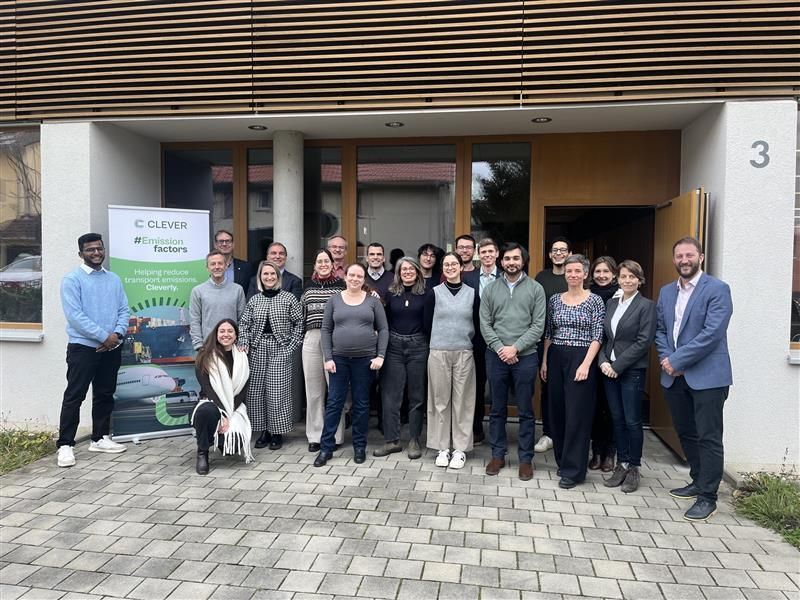
The role of public transport in achieving the SDGs: A UITP survey reveals the path forward
In a world where sustainability and inclusivity are paramount…
Public transport is not merely a means of commuting; it’s a driving force behind progress. The United Nations’ Sustainable Development Goals (SDGs) provide a framework for a brighter, more equitable future. And at the heart of this global agenda lies the potential of public transport to transform communities, mitigate environmental impacts, and foster economic growth.
UITP has embarked on a global survey to illuminate the profound contributions of the public transport sector to the SDGs. In this article, we delve into an insightful interview with Arthur Cormier, Junior Manager of the Mobility Governance Unit, to gain a deeper understanding of the survey’s objectives, methodology, and early observations regarding public transport’s role in achieving the SDGs.
The sector can contribute to SDGs from different perspectives: as an urban mode of transport provided throughout cities, public transport serves local communities (SDG 11) and all types of users (SDG 10) and helps to support economic growth (SDG 8).
We believe the SDGs are an extraordinary opportunity for the public transport sector to showcase its positive impacts on society and contributions to the UN’s 2030 Agenda. With this survey, we hope to provide the appropriate framework for public transport operators and authorities to align their strategy with the SDGs and support them in assessing their level of maturity in that regard. It will also be an opportunity, with the finalised study, to showcase concrete examples where public transport has a positive effect to be enhanced or impacts to be mitigated across all SDGs. As UITP has a unique position, representing the entire public transport supply chain, we also hope to provide the sector with guidance on addressing SDGs within their activities and take an active part in making our societies more sustainable and inclusive.
We are working with a team of members from the UITP Sustainable Development Committee and with the methodological approach proposed by our member, the University of Milano Bicocca (Italy). We have carried out an assessment against all 17 SDGs and have selected the most relevant SDGs and sub-targets to which public transport contributes. Based on this, questions were developed and compiled in a survey open to all public transport operators and authorities. Agglomerated data will be compiled in a report and will be completed with case studies and examples of strategies aligned with SDGs, collected through a series of interviews.
The sector can contribute to SDGs from different perspectives: as an urban mode of transport provided throughout cities, public transport serves local communities (SDG 11) and all types of users (SDG 10) and helps to support economic growth (SDG 8); as a sustainable mode of transportation, a modal shift towards public transport supports the improvement of air quality in cities (SDG 3) but also climate objectives as an energy efficient-mode (SDG 13); and also as organisations often employing thousands of employees, staff policies will have an impacts on SDGs to improve gender equality at all management levels (SDG 5) or safety of the workforce (SDG 8) and to reinforce the development of sustainability around the world (SDG 17). The list is not exhaustive of course, but should give some perspectives on how the goals are aligned with public transport activities.
As in many other sectors, we can feel wake-up-call of companies and organisations to manage their externalities. For public transport, we can see a real uptake of the energy transition of road vehicles towards cleaner alternatives (sales of electric buses was six times larger in 2021 than four years earlier) or development of energy efficiency projects to reduce energy consumption of the sector.Considering that buses for instance emit about twice as less as cars, the energy transition of public transport combined with modal shift is far greater than a transition to electric cars alone. But to enable this shift and the transition towards a net zero urban mobility, it will alsoneeded for public transport to develop a customer-centricity approach andto be more inclusive of the needs of every categories of users. Public transport needs to be accessible, affordable, available, and acceptable for all. Inclusivity must be an essential aspect in the decarbonisation of mobility and I believe this is more and more considered by the sector.
Summing up…Public transport is not just a mode of getting from A to B.
It’s a catalyst for sustainable development…UITP’s global survey on public transport’s contribution to the SDGs is an essential step towards realising this potential. By aligning strategies, assessing maturity, and showcasing real-world examples, the public transport sector is poised to become a driving force behind the UN’s 2030 Agenda.
This survey, bolstered by the collaborative efforts of UITP, its members, and partners, promises to guide public transport towards a future that is not only environmentally friendly but also inclusive and accessible for all. As we embark on this journey, it’s clear that the public transport sector is taking its impact seriously, embracing change, and leading the way towards a more sustainable and equitable world.
Share your knowledge and help us to advance the sector.








